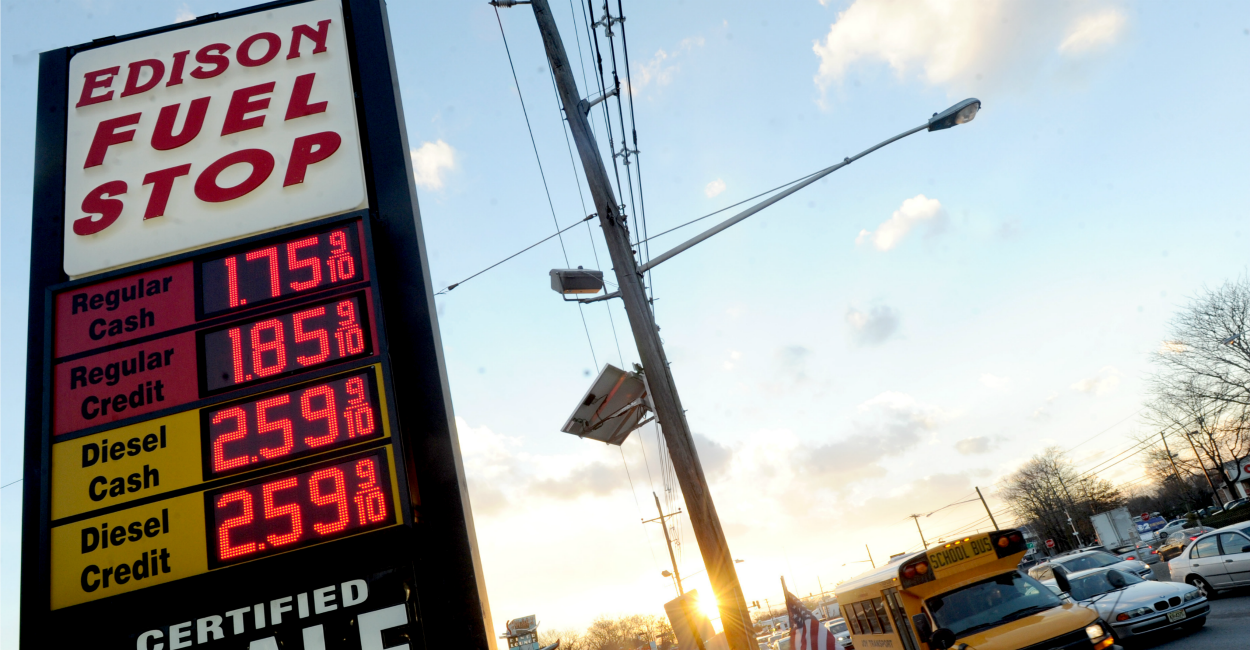Congress has a particularly bad habit of bailing out federal programs without addressing the underlying problems that caused failure in the first place. This round, we’re punting the ball on the Highway Trust Fund.
However, this time is different. We have a common-sense solution to reform our nation’s transportation policy, modernize America’s outdated transportation infrastructure system, and return decision making power to the states.
The Transportation Empowerment Act will update federal transportation policy with the same proven principles—diversity, customization and open-sourcing—that are driving innovation across our economy today.
Today, when we think of federal transportation policy, we think of the triumph of the Interstate Highway System. It was an enormous national project that began in the 1950s under President Eisenhower and reflected post-war America’s confident optimism. We had become a combustion-engine economy and needed a transportation network to connect our nation. So we built one.
Thanks to the Interstate Highway System, you can drive from Miami to Salt Lake, and from San Diego to Boston, only having to stop for gas. And a job well done is still a job, well, done.
In recent decades, America’s transportation needs have changed, but—as is too common in Washington today—our transportation policies have not kept pace. The highway program, and those who used it, built highways, via a per-gallon gasoline tax paid at the pump.
Today, drivers still pay the tax, but politicians redirect portions of the highway fund for bike lanes and walking paths and public transit systems in certain cities. Meanwhile, partisan giveaways to special interests and bureaucratic skimming artificially inflate the cost of new infrastructure projects by as much as 20 percent.
The Transportation Empowerment Act will reduce the federal gas tax from 18.3 cents a gallon to 3.7 cents a gallon.
The status quo isn’t working; that’s why Congress hasn’t truly reauthorized the highway program in years. We just keep coming up with patches and bailouts.
Today, our most pressing transportation needs are local, not national. States and local governments are not only up to the job of maintaining existing highways—they’re already responsible for 75 percent of it. They are, in fact, far better positioned to lead in the next phase of infrastructure innovation. That is what our bill will finally allow them to do.
The Transportation Empowerment Act will transfer much of the responsibility for transportation projects to the individual states, allowing them to decide how to best spend their transportation dollars, and ultimately cutting out the Washington middle-man.
As states take the reins on their own transportation initiatives, the Transportation Empowerment Act will then reduce the federal gas tax accordingly, from 18.3 cents a gallon currently to 3.7 cents a gallon in five years. The reduced gas tax would still collect enough revenue to maintain existing inter-state highways, while leaving state and local governments free now to focus on their own intra-state infrastructure needs.
That is, we would move transportation policy from a centralized bureaucratic, 20th-century model to a diverse open-source network better suited to 2015.
Whether it be using gas tax revenue to build its own highways, or experimenting with smart tolls, each state will have the flexibility to undertake the infrastructure projects that will most positively impact its own communities. Urban communities might find that their dollars are best invested in green-energy public transit, while others might focus their resources on constructing new roads to increase access to rural areas.
Most importantly, each state will be free to make those community-specific decisions without the restrictive and costly red tape imposed by the federal government.
Enough with Washington bureaucrats driving the decisions concerning roads they have likely never driven on and likely couldn’t describe their state of repair or explain where they fit in the local communities’ long-term mobility plans. Federal policy should stop straight-jacketing America’s diversity and instead tap into its innovative potential.
Our current transportation policy status quo is falling behind a changing society and economy. The future of transportation is a flexible, organic, open source network of empowered individuals and communities, as diverse as America itself.
And the Transportation Empowerment Act will finally bring that future into the present. Washington may have broken the highway system, but America can fix it.
































